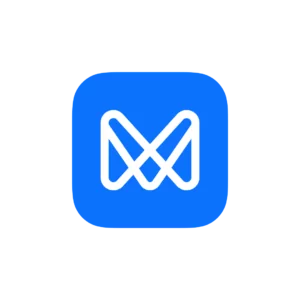Once you master something, it’s natural to want to help others master it, too.
It’s a rewarding experience of giving back, whether it’s a game, a musical instrument…
Or building a Fintech.
On today’s show, I caught up with Mike Kane, Co-Founder at Hydrogen, the Fintech enablement platform that has made it easier than ever before to build a Fintech from scratch and get to market in record time.
What we talked about:
- How Hydrogen came to be
- How they help you avoid siloed systems
- Why simplicity matters
How Hydrogen’s Fintech Enablement Platform came to be
In 2009, Mike and his twin brother, Mark, started their own robo-investing firm, Hedgeable — one of the first in the market.
The goal was to help more people invest like wealthy people.
Then a few years ago, they realized they could take the lessons learned building Hedgeable and help thousands of entrepreneurs like themselves build Fintechs from the ground up.
“If you’re building in the banking, market and payment card space, why not have a platform that would allow you to build these different applications and enable that?” — Mike Kane
After spending 5 years building infrastructure, it seemed like a no-brainer.
That original infrastructure was bridging their front-office platform in financial services to the back office since, at the time, no middleware really existed.
But once middleware APIs like Plaid, Stripe and CurrencyCloud came on the scene, there was still the problem for entrepreneurs that no one really knew how to build on top of these back-office
Essentially, they build the application layer, integrate with all of the popular middleware APIs, and build front-end libraries on top of the ecosystem.
With Hydrogen, the complexity is abstracted away and everything is integrated and standardized.
Communication is key
Mike says there are two kinds of users in this market: the sophisticated user and the low-to-no coding user.
The sophisticated users, typically Fintechs or large enterprises, want to build on top of APIs, build their own workflows, front end and UX — either in-house or through a third party.
Hydrogen has 700+ APIs that connect into some of the middleware or abstract away some of the back-office complexity for the user so they can build their own.
For the less sophisticated user — those who want to avoid code or just get to market quickly — Hydrogen provides no-code web and react components and integration with CurrencyCloud, Stripe, KYC and others. They also provide onboarding and analytics.
Everything will be orchestrated with the front end, with plug and play components, allowing the user to get to market within a few days.
What really sets Hydrogen apart from its competitors is the way its ecosystem works together.
“Our whole platform is orchestrated together. So it’s a big difference between us and others.” — Mike Kane
This means that each feature — whether that be cards, investment analytics or goals-based saving — communicates with everything else. Customers can pick and choose what features they need and nothing will be siloed.
And the benefit is obvious when you look at legacy banks and insurance companies.
As they’ve bought companies, moved through Linux to other OS and integrated new systems, none of these things talk to each other.
The levels of complexity mean the data just doesn’t integrate.
The simpler, the better
All of this adds up to another huge benefit: simplicity.
Not only does this communication between applications and ease of use mean companies can go to market faster, it saves a lot of headaches, too.
And for its part, Hydrogen does everything it can to make things easy on the user.
“If we’re going out and saying ‘We’re trying to make it easy to build Fintech components,’ it can’t be hard to use our platform.” — Mike Kane
In their developer center, they’ve put a lot of work into creating a huge amount of documentation, tutorials, UI libraries and building out configuration libraries.
The goal is to make sure firms can focus on the core of their business and not have to worry about customer success.
With all this simplicity: If you’re looking to start your own Fintech, there has never been a better time.
To ensure that you never miss an episode of Payments Innovation, subscribe on Apple Podcasts, or Spotify, or here.
Until next time!

